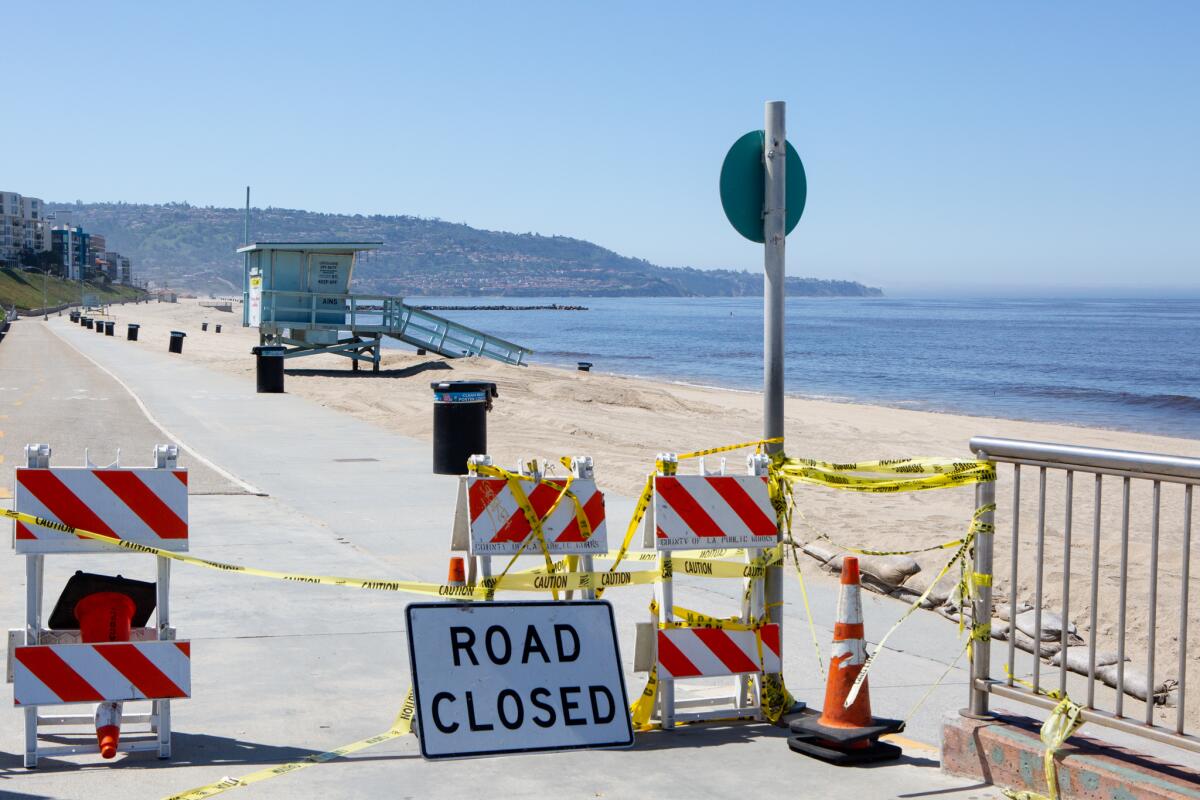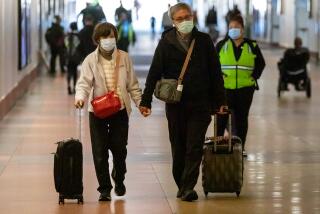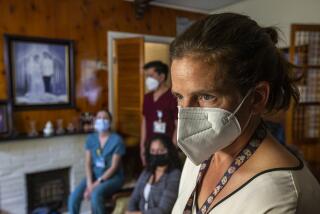Coronavirus is retreating in Bay Area, advancing in Los Angeles

- Share via
Reopening California has been complicated because the coronavirus outbreak is behaving differently in various parts of the state.
The San Francisco Bay Area has seen consecutive weekly declines in the number of new cases, while Southern California has seen the pace of new cases increase.
Los Angeles County has become the heart of the coronavirus crisis in California, recording more than 1,000 deaths. Even adjusted for its larger population, its rate of 9.9 deaths per 100,000 people is 68% higher than the next-hardest-hit urban county, Riverside, and 80% higher than the hotbed of the crisis in the Bay Area, Santa Clara County, according to a Times analysis of coronavirus data.
Hospitalizations also remain stubbornly high, helping to explain the reluctance to ease the stay-at-home order in California. Half of all hospitalized coronavirus patients in California are being treated in Los Angeles County, which is home to a quarter of the state’s population, the analysis found.
California has so far managed to avoid the death toll New York state has faced, with more than 22,000 dead. The Golden State has reported about 1,800 fatalities.
Yet the numbers of new coronavirus cases and deaths reported every week statewide — although not increasing as fast as before — are still rising on a weekly basis. The numbers have yet to begin a sustained downward trend.
Despite the recent increase, officials are expecting that L.A. County will start to see a decline in new cases around mid-May.
Here’s a look at cases, hospitalizations and deaths:
Coronavirus cases
Statewide
The number of confirmed cases of coronavirus infection can be a tricky indicator. The figure may be affected by backlogs in reported cases suddenly showing up in the public record.
And despite the stay-at-home order, more people continue to become infected, such as people in congregate care settings like nursing homes and people who continue to work as essential workers, as well as those who venture out for essential trips, such as picking up groceries.
Still, experts expect coronavirus case numbers to eventually decrease in areas including L.A. County, believing the stay-at-home order has been, and continues to be, effective.
Testing capacity continues to increase, and in L.A. County, “once the testing sort of equilibrates out, I think you’ll start seeing declines,” said Dr. George Rutherford, UC San Francisco epidemiologist and infectious diseases expert.
Los Angeles County has a higher vulnerability to health emergencies than the San Francisco area, the U.S. Centers for Disease Control and Prevention has said, due to differences in poverty, crowded housing and lack of access to transportation.
Coronavirus deaths
Deaths are a helpful indicator to track the progress of an outbreak, but will still be rising even as hospitalizations and new cases decrease.
Statewide
Coronavirus hospitalizations
Health officials are particularly focused on the trend in the number of people hospitalized for COVID-19.
Dr. Grant Colfax, director of public health for San Francisco, said of hospitalization numbers, “We need numbers to start dropping significantly and just stay down for several weeks.”
Statewide
More to Read
Sign up for Essential California
The most important California stories and recommendations in your inbox every morning.
You may occasionally receive promotional content from the Los Angeles Times.












